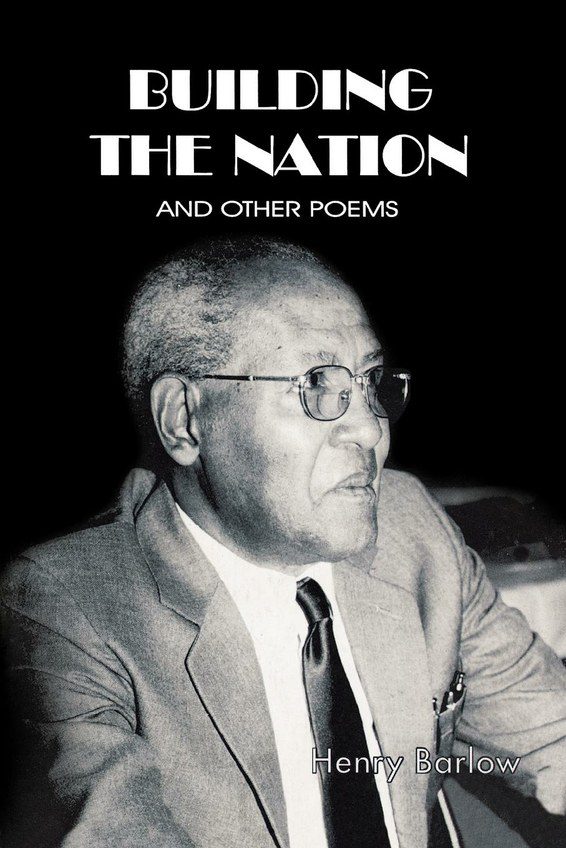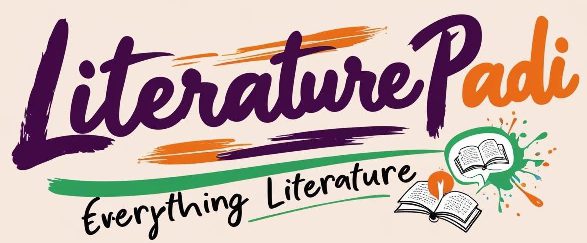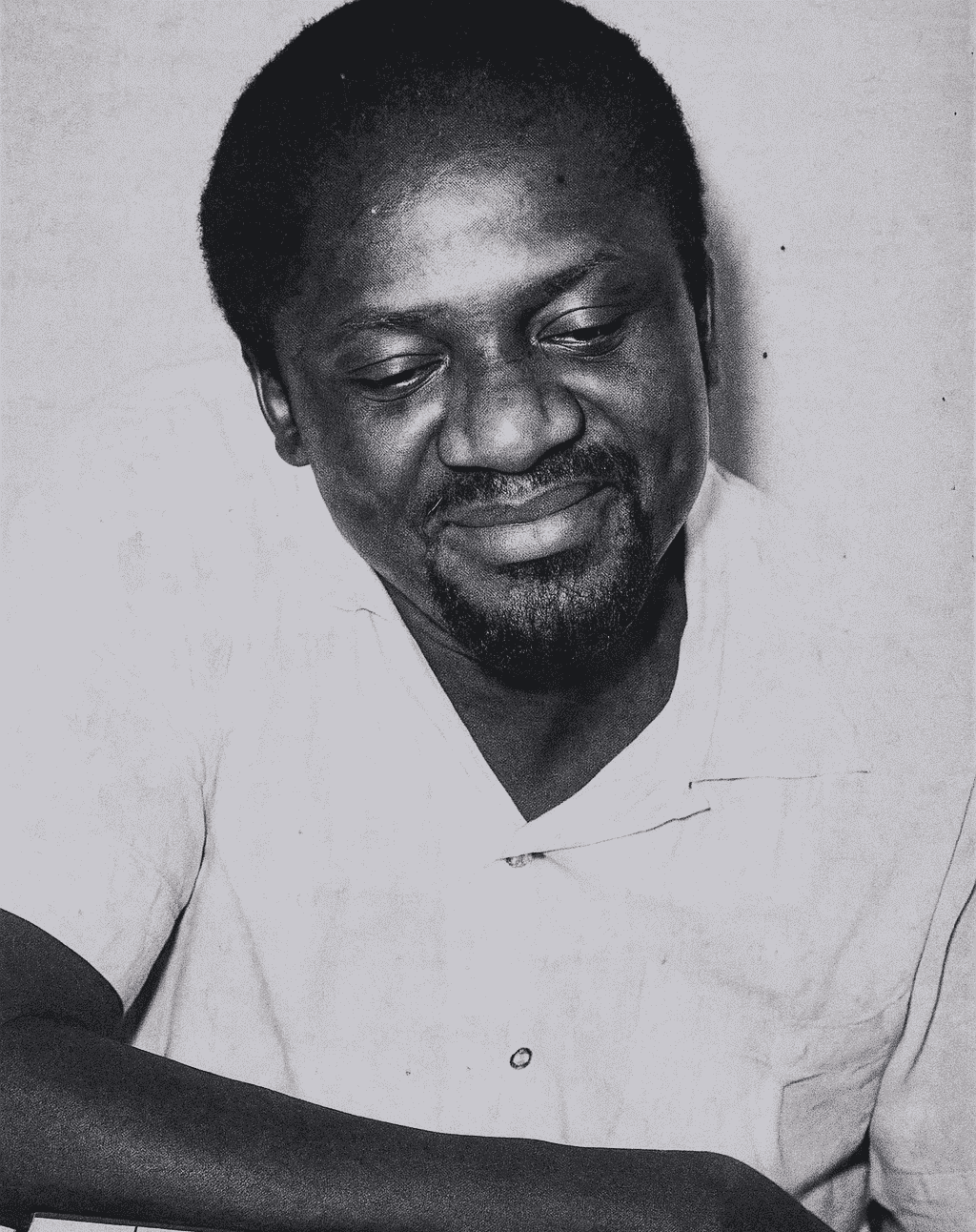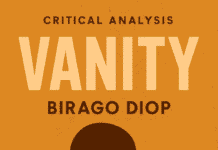📢 Follow our WhatsApp Channel for the latest literary updates!
“Building the Nation” is a satirical poem by Henry Barlow that critiques post-colonial African leadership and the empty rhetoric of service. The poem highlight the growing divide between those in power and those who do the real work.
It recounts a day in the life of a chauffeur who drives a government official (the Permanent Secretary) to a so-called “urgent function,” which turns out to be a lavish luncheon. The driver waits outside without food while the PS and his kind feast in a luncheon seemingly facilitated and enabled by the country’s funds.
Upon returning, the PS laments the toll of his “delicate diplomatic duties,” unaware of the chauffeur’s silent suffering. He complains of stomach ulcers due to “diplomatic duties,” while the driver suffers genuine hunger pains. Both return home with stomach pains: the driver from hunger and the PS from overeating.
The irony in this is that, by their inputs, they both claim to have participated in the process of “building the nation”. Henry Barlow uses this poem to expose the self-serving attitudes of elites and the silent endurance of the working class. He challenges, of course, the the true meaning of national service and development. The poem depicts how the burden of building the nation often falls on the poor, while the elite enjoy the rewards.

Henry Barlow was a prominent Ugandan poet and government official. He studied economics and worked in the Ugandan civil service, which gave him direct insight into the workings of government and the class disparities in post-independence Uganda.His poetry is known for its satirical edge, simple language, and powerful social commentary.
“Building the Nation” is his most famous poem. It was written in the post-independence era of East Africa. During this time, newly independent African nations were grappling with issues of governance, corruption, inequality, and the divide between the ruling elite and the working class. The poem portrays the disillusionment of ordinary citizens who expected meaningful change after colonialism but instead witnessed the emergence of a self-serving political class.
The poem is published as one of the poems in his year 2000 poetry collection, Building the nation and other poems.

Structure of “Building the Nation”
“Building the Nation” is a thirty-six-line poem divided into six stanzas. Here is an outline of the number of lines each stanza has:
- Stanza 1 has five lines.
- Stanza 2 has six lines.
- Stanza 3 has seven lines.
- Stanza 4 has nine lines.
- Stanza 5 has four lines.
- Stanza 6 has five lines.
The structure of the poem is informal, free-flowing, and deliberately conversational. The poem is written in a free verse style that mirrors natural speech. It is essentially a first-person narrative poem that follows a chronological sequence of setting out, the luncheon, return journey, and reflection on the day’s event.
Stanza-by-Stanza Analysis
Stanza 1 (Lines 1–5)
The speaker begins by saying he has done his part in “building the nation” (l. 2) for the day. He claims to have driven a Permanent Secretary to what is described as an “important urgent function,” (l. 4) which humorously turns out to be just a lunch at a hotel called “the Vic” (l. 5). The hotel referenced so here is perhaps Lake Victoria Hotel, a colonial vestige positioned for such luncheons and urgent governmental functions.
This stanza sets a tone of irony and satire. The phrase “building the nation” is typically used to describe meaningful civic duty, but here it’s used sarcastically. The anticlimactic reveal that the “urgent function” is merely a lunch immediately highlights the theme of political hypocrisy. The bureaucratic language (“Permanent Secretary,” “urgent function”) contrasts sharply with the mundane reality and exposes how government officials mask leisure as duty.
Stanza 2 (Lines 6–11)
The driver continues. He gives a detailed account of the meal on the menu for the luncheon of the PS and his kind: beer, fried chicken, wine, ice cream, and coffee. The food and drink are paired with small talk, empty laughter, and stereotypical jokes—all suggesting a social event with no real purpose.
The stanza satirises the luxurious lifestyle of the elite. The language used—“wine to fill the hollowness of the laughs,” “ice-cream to cover the stereotype jokes”—is loaded with sarcasm. These metaphors imply that the function was emotionally empty and intellectually shallow. The phrase “coffee to keep the PS awake” adds another ironic touch. It suggests that even the luxury tires him.
Stanza 3 (Lines 12–18)
In stanza 3, the speaker drives the PS back. The official yawns repeatedly, and to stay awake, he casually asks the driver if he had lunch. The driver responds dryly that he hadn’t, jokingly saying he was “slimming,” (l. 18) and smiles secretly at the PS’s belated and shallow concern.
This stanza is reflective of the class divide and lack of empathy within the bureaucratic system. The PS’s question is not sincere. It’s asked more to keep himself awake than out of genuine concern.
The driver’s sarcastic response and silent smile reveal his awareness of the hypocrisy. The smile is not warm. It’s a biting gesture of quiet resistance and moral superiority.
Stanza 3 thus portrays the emotional and physical hunger of the working class in contrast to the entitled weariness of the ruling elite.

Stanza 4 (Lines 19–27)
The Permanent Secretary tries to relate to the driver, claiming he, too, had no lunch because he was attending to “delicate diplomatic duties” (l. 23). He speaks with exaggerated seriousness, saying the stress gives him stomach ulcers and gas. He dramatically laments about the “pains we suffer in building the nation” (l. 27).
Stanza 4 deepens the satire and irony. The PS’s complaint about ulcers, supposedly caused by “matters of state,” (l. 22) is presented as a self-important exaggeration. The speaker’s reaction, amusement more than annoyance, shows his awareness of the PS’s performative suffering.
The PS’s use of “Mwananchi” (a Swahili word for “citizen” or “common person”) suggests an attempt to create false camaraderie, but it rings hollow. His “pains” are those of overindulgence and bureaucracy, not real hardship. This stanza exposes political hypocrisy, as the elite pretend to suffer for the public good while they enjoy privilege.
Stanza 5 (Lines 28–31)
The speaker reflects that the PS may have ulcers but his own stomach pain is caused by real hunger, not by the stress of luxurious lunches and political pretense. It is only hypocritical for the PS to complain after a feast, while his driver goes hungry. This hauntingly reminds one of leaders and policymakers who have lost touch with the socio-economic realities of the people they govern and end up making anti-people laws and policies.
Stanza 6 (Lines 32–36)
Both the PS and the driver return home with “terrible stomach pains” (l. 34) after “building the nation”. This closing stanza is critical of the PS whose contribution is ceremonial and self-serving, but sympathetic to the driver who does the real work of driving important diginitaries around with empty stomach.
Tone and Mood of the Poem
Tone
The poet adopts an ironic, satirical, and conversational tone to subtly criticise government officials. Beneath the humour lies a bittersweet and resentful undertone from the perspective of the underpaid driver. He mocks the emptiness of official duties and the disconnect between leaders and ordinary workers.
Mood
“Building the Nation” creates an initial feeling of amusement, which gradually shifts to sympathy for the driver and ends in a critical and reflective mood as the reader realises the deep social and economic inequalities in the nation.
Figures of Speech in “Building the Nation”
1. Irony
This is a contrast between expectations and reality. In, “I did my share / In building the nation” (l. 1-2), we find that the speaker appears proud of his contribution, but the irony lies in the fact that all he did was drive a government official to a feast, exposing the hollowness of the statement.
In “I was slimming!” (l. 18), the driver uses irony to hide the truth that he was actually hungry.
2. Satire
Satire is the use of humour, irony, or exaggeration to criticise. The entire poem mocks government officials who pretend to suffer while living in luxury. This is instantiated in the realities of the two nation builders. The Permanent Secretary complains of ulcers from eating too much, while the driver suffers from hunger.
3. Symbolism
Symbolism is using something to represent a deeper meaning. There are some words in the poem that demonstrate just that. “Food” and “the luncheon” symbolise privilege, excess, and the shallow nature of official duties. Similarly, “stomach pain” symbolises different kinds of suffering: false suffering (PS) vs. real suffering (driver).
4. Juxtaposition
Juxtaposition is placing two contrasting elements side by side. The driver and the PS are both depicted as “nation builders,” but their experiences show the gap between the ruling elite and the working class.
5. Hyperbole
Hyperbole is used in line 23, “Highly delicate diplomatic duties…”, where the PS exaggerates his task to make it sound important, though he just attended a lunch.
6. Sarcasm
Sarcasm is a form of verbal irony meant to mock. It is employed in line 18, “I was slimming”, to mask the fact that the driver wasn’t given lunch at all.
7. Metaphor
Metaphor is a comparison without using “like” or “as”. “Building the nation” is used metaphorically in the poem. It represents both the literal and ironic roles people claim in contributing to national development.
8. Euphemism
Euphemism is a mild or indirect word used in place of something harsh or blunt. In the poem, “matters of state” (l. 22) and “highly delicate diplomatic duties” (l. 23) are euphemisms used to dress up the simple act of attending a feast.
9. Alliteration
Alliteration is the repetition of initial consonant sounds in words. Examples include:
“Cold Bell beer...” (l. 7)
“Coffee to keep the PS awake...” (l. 11)
Related:
Join Our Social Media Channels:
- WhatsApp: Literature PADI
- Telegram: Literature PADI
- YouTube: @literaturepadi
- Facebook: Literature PADI










